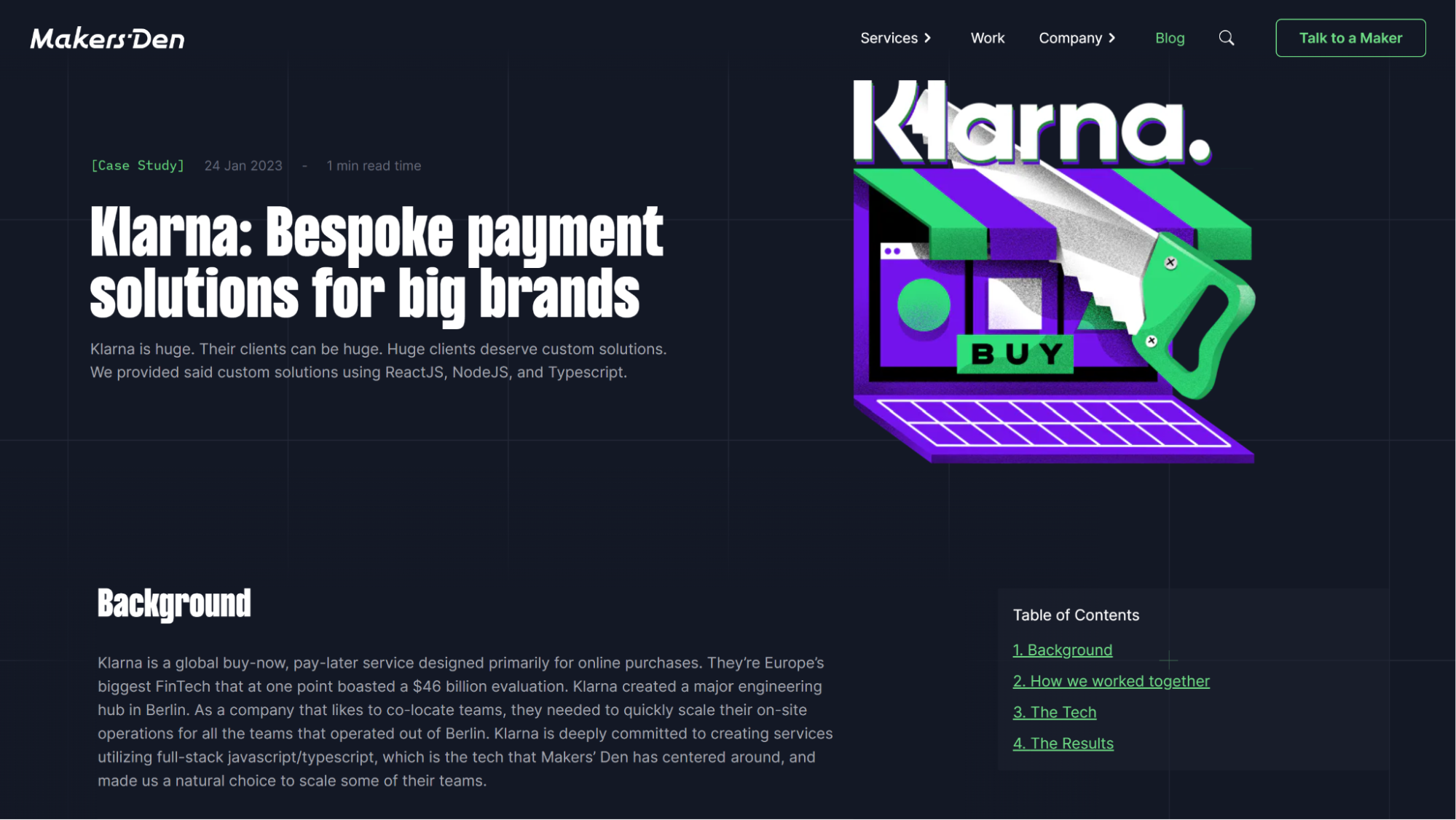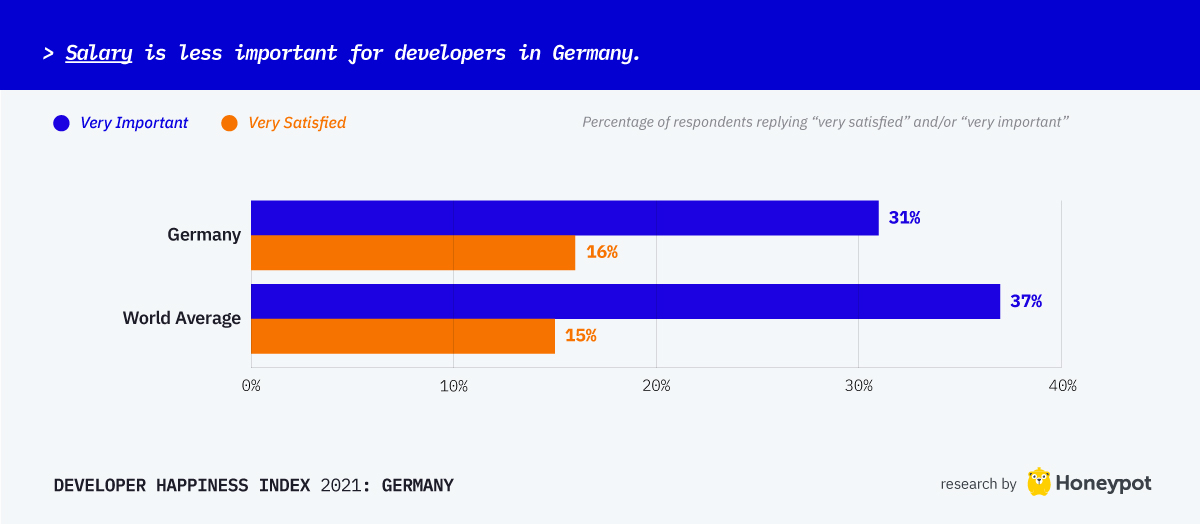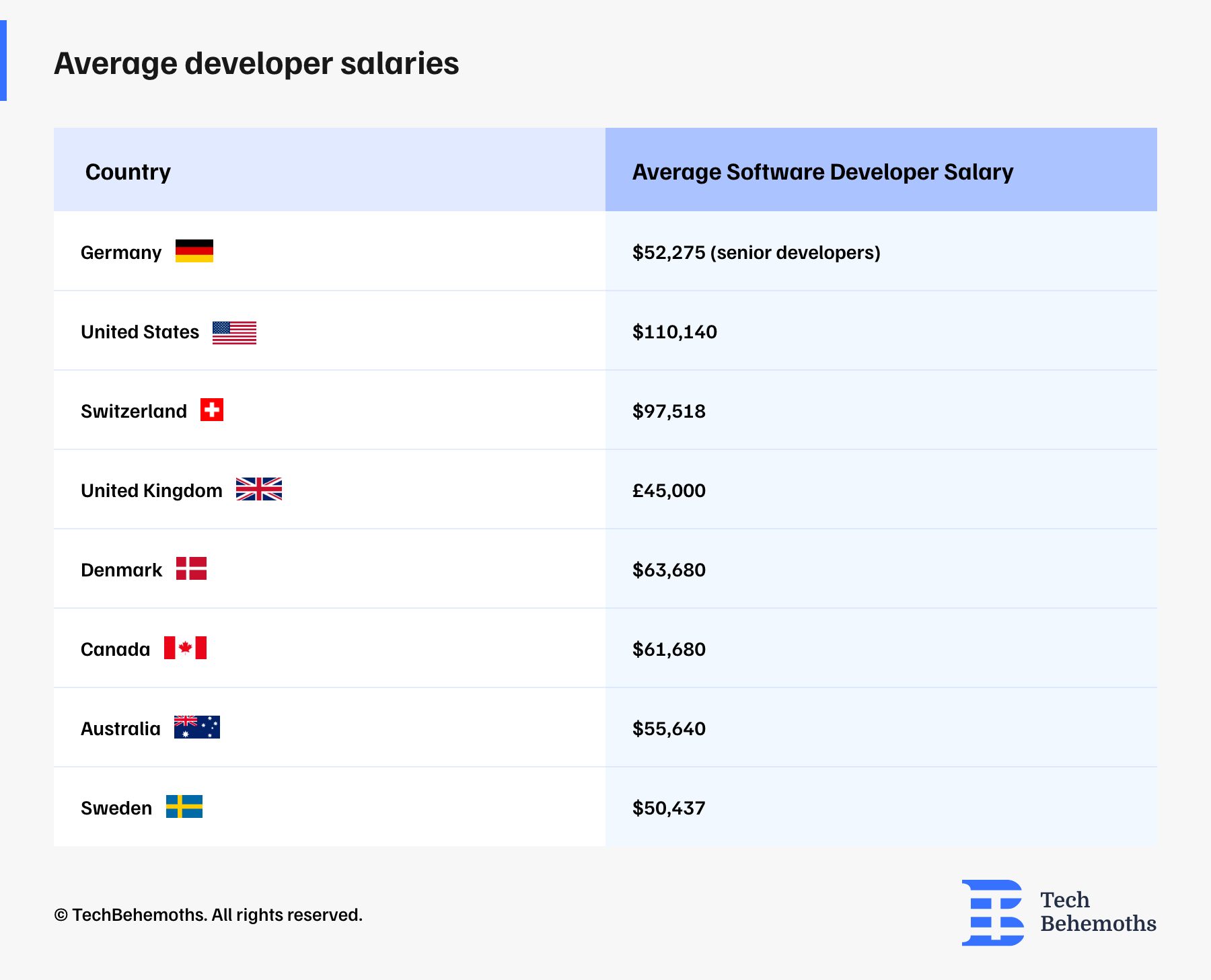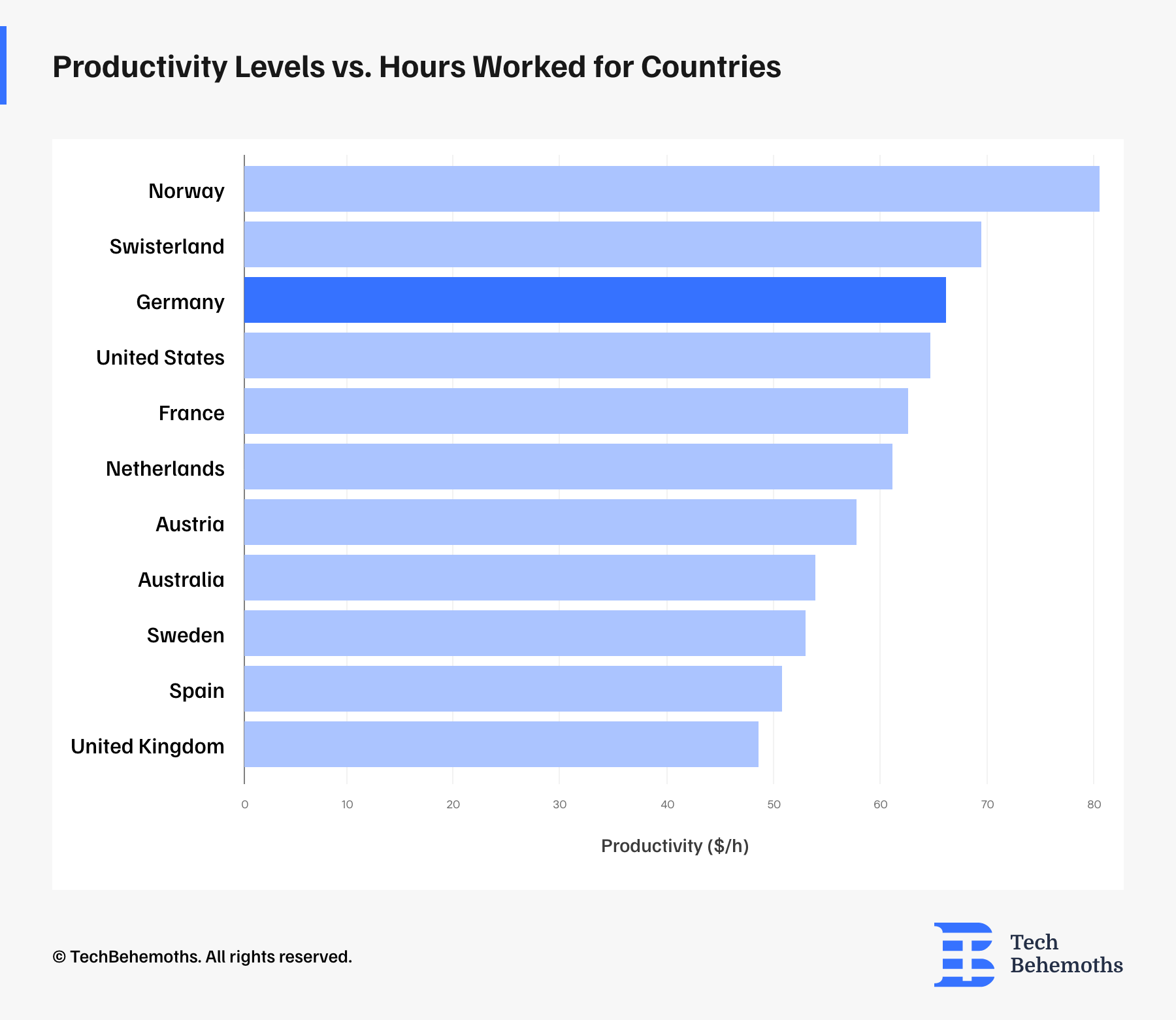Things to Know Before Hiring an It Service Provider From Germany

Germany is one of the world's biggest and most advanced IT markets today, with the sector’s revenue growing steadily over the last decade, and it is forecasted to reach 120.2 billion euros in 2023. Building software with German IT companies is not only the default avenue for German-native businesses but also, increasingly, the destination for many foreign businesses seeking a reliable IT partner.
Whether you're looking to hire developers for a cutting-edge startup or an established tech company, Germany is an excellent place to find top talent. With a reputation for excellence and a focus on innovation, software development companies in Germany can positively impact any organization.
But let’s begin with a low-down first: what is the right company to partner with in Germany?
Selection Criteria
Selecting an IT partner in Germany is similar to any other place worldwide. It should consider both the technical and operational competencies and Germany’s unique cultural and communicative dynamics. Let’s look at some key considerations:
-
Shortlist companies offering a talent pool in your desired technology. Ask about specific development methodologies and technologies they use.
-
Aim for smaller startups or mid-sized companies that can provide more flexibility, customization, and dedicated project teams.
-
Ask about the agency’s information security standards and practices – typically a strong point for German technology firms.
-
Browse the agency’s case studies and client testimonials
Your German software development contractor should match your immediate technical needs and align with broader characteristics and advantages inherent to the German software development landscape.

Maker’s Den: A specialized, full-stack ReactJS Web and Mobile Apps agency with experience in big projects
The Selection Process
The selection process should focus on technical expertise, development methodologies, information security, successfully delivered projects, and communication. The checklist below should serve as your roadmap:
Step 1: Define your requirements
Define the scope and requirements of your project – the goals, the technology stack needed, the market the software will serve, and specific regulatory requirements that must be met. Consider the scale of your project and the level of expertise required.
Step 2: Shortlist potential partners
Research potential software development companies in Germany. Look for firms with a strong reputation building similar projects. Utilize online platforms industry reports (Statista), and networks (Xing, the German LinkedIn) to create a list of potential candidates. Prioritize companies with a portfolio demonstrating their capability to deliver similar projects successfully.
Step 3: Evaluate technical expertise
Assess the technical expertise of each potential partner. Review case studies, ask about their previous work, and inquire about the qualifications and experience of their team members.
Step 4: Development methodology
Inquire about the development methodologies the companies employ. Partners who utilize agile methodologies can offer more flexibility and quicker turnaround times. Agile practices also foster better communication and collaboration, vital for project success.
Step 5: Check information security practices
Given the importance of data security, especially in a country like Germany with stringent data protection laws, ensure that the software development partner follows robust security protocols. Ask about their compliance with international standards such as ISO 27001 and European data protection regulations.
Step 6: Read client reviews
Request references and contact past clients to understand their experience with the software development firm. Pay special attention to reviews from clients with similar scope and complexity in their projects.
Step 7: Assess cultural fit
The partnership's success will also hinge on the cultural fit between your company and the German partner. Evaluate their corporate culture, communication style, and business practices. A partner that aligns with your company’s values and work ethic can lead to a smoother and more effective working relationship.
Step 8: Consider operational compatibility
Operational compatibility is key, especially when working across borders. Consider factors such as time zone differences, language barriers, and the potential for onsite visits. A partner with a good overlap in working hours and strong language skills will facilitate better communication and collaboration.
Step 9: Discuss project management and reporting
Effective project management and regular reporting are vital for maintaining project progress visibility. Discuss the potential partner’s project management tools, frequency of reporting, and how they handle project tracking and issues management.
Step 10: Conduct a pilot project
Conduct a pilot project with the shortlisted partners – this can serve as a practical evaluation of their capability to deliver and work with your team. A pilot project can help you assess the quality of work, adherence to timelines, and test communication.
Why it makes sense to work with German IT software development companies
Germany is recognized for its skilled web and mobile app developers, including those from both emerging startups and well-established tech firms. Here's an overview of why their developers are respected and why hiring dev teams from the country is a wise business decision.
1. Cost: The elephant in the room?
Software development in Germany is less expensive than most people would expect. The average take-home developer salaries in popular European nearshore markets like Ukraine and Poland are only 20%-30% lower than those in Germany. On top of that, software development companies in Germany can make extra savings from the fact social security and other employment taxes are typically much lower. These considerations lead to a more satisfied workforce overall.

Source: Honeypot
The statistics suggest that other factors influence their decision to accept a job. Also, a higher satisfaction rate with salary in Germany compared to the world average indicates that developers may value other aspects of their job more highly. Companies operating in Germany can attract and retain top talent by focusing on an attractive work environment, technological stack, and growth opportunities rather than paychecks alone.
2. Germany attracts the best talent
As an aftermath of job reductions in Silicon Valley between 2022 and 2023, Germany seized this chance to attract premier software engineering talent. This move was geared towards mitigating labor shortfalls and advancing technological progress. German companies, keen on hiring capable individuals, presented attractive job offers and a more effortless immigration procedure.
Germany is a great place for developers to build their careers – they are well-paid, ranking in the top ten best-paid globally. The figures in the table below are averages (see table below). Actual salaries can vary based on factors such as experience, skills, and location within the country:

Sources: talentup.io, codesubmit.io, cult.honeypot.io, helloastra.com
3. A great education system
In Germany, developers benefit from a world-class education system that rewards practical skills and hands-on experience. Many technical universities in Germany have close relationships with industry partners, providing students with opportunities to work on real-world projects and gain experience with cutting-edge technologies. In addition, the system strongly emphasizes teamwork and collaboration, ensuring that developers are well-prepared to work effectively in diverse teams.
Germany is also recognized as one of the leading nations for academic pursuits in software engineering. According to the Scimago Institutions Rankings for 2023, the top German universities in Computer Science are as follows:
-
Technische Universität München (TUM) – Ranked 51st globally.
-
RWTH Aachen University – Ranked 182nd globally.
-
Technische Universität Berlin – Ranked 220th globally.
-
Technische Universität Darmstadt – Ranked 225th globally.
-
Karlsruher Institut für Technologie (KIT) – Ranked 231st globally.
-
This ranking indicates that TUM leads among German universities in Computer Science, with a robust global standing at 51st place.
The German government demonstrates a strong commitment to applied research by funding research institutions, supporting the creation of start-up companies, and licensing intellectual property to help researchers build careers outside academia.
4. A stable business environment
Being part of the EU, German companies operate within a stable economical and political framework that is well aligned with European standards and regulations.
The strong German economy offers stability for long-term projects and partnerships.
Also, Germany provides a robust legal framework that can offer strong protections for intellectual property and data privacy, which is crucial when developing software.
The German government prioritizes information and communication technology (ICT) as part of its economic and innovation efforts, which is detailed in the Digital Agenda by the Federal Ministry for Economic Affairs and Climate Action (so-called BMWK). The German National Digital Strategy 2025, started in 2016, also plays a significant role in this.
5. Productive developers
Developers in Germany are renowned for their productivity. They take pride in what they do and are committed to delivering high-quality, which is vital in the fast-paced world of software development, where tight deadlines and expectations are high.
German productivity can be measured as gross domestic product (GDP, expressed in USD) per hour of work. See the chart below for reference (the amounts are adjusted for inflation and differences in the cost of living between countries).

Source: Honeypot
6. Attention to detail
Developers in Germany are also known for their meticulous attention to detail. In software development and game development, the developers are particularly adept at identifying and resolving bugs and other issues in code. Their thoroughness and precision ensure that their code is of the highest quality, essential in industries where even minor errors can have significant consequences.
Germany: Your Door to a Broader Network of Businesses and Technology Experts
Germany serves as an important technology and business hub in Europe. Germany-based companies maintain solid partnerships and networks with other European entities, providing clients with useful connections. Often involved in European technology consortia, research projects, and industry initiatives, German firms offer the benefit of their established memberships for future networking purposes.
Germany hosts some of the world’s biggest conferences and trade shows:
-
Hannover Messe – The largest industrial trade show in the world, of interest for U.S. producers of industrial IT solutions (Hannover).
-
Gamescom – Interactive games and entertainment (Cologne).
-
IFA Berlin – Consumer electronics and home appliances (Berlin).
-
it-sa – IT security: Cloud, mobile & cyber security, data & network security (Nuremberg).
Also, many German software companies and agencies have multi-national and cross-border operations across Europe. They facilitate further business relationships. For example, a German agency may have satellite offices and strategic partners in neighboring European countries.
Germany is also renowned for its startup ecosystem, coming in ninth among 202 countries globally, particularly in Munich, Hamburg, and Berlin, which have become Germany’s leading tech hubs.
Concluding Thoughts
German developers are among the best in the world, with a combination of world-class education, technical skills, and a strong work ethic. And while it is not possible to recommend a single German IT company that would be "right" for every project, the country is a hotbed of innovation where one is easier to find. Unsurprisingly, Germany is home to many renowned software development firms, from global players like SAP to many specialized mid-sized enterprises and startups known for their engineering excellence.